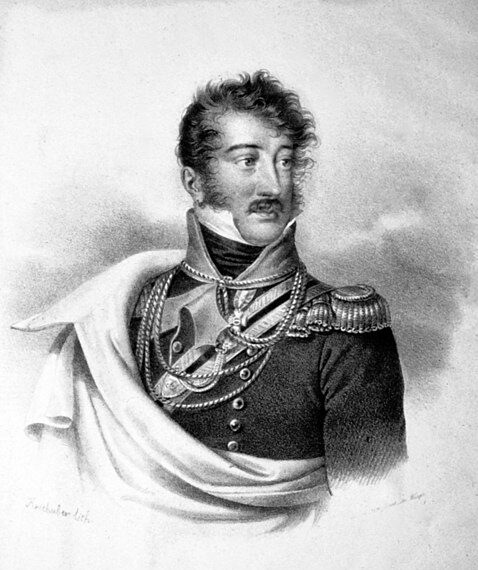Prince Ferdinand Johann Nepomuk Kinsky (1781 – 1812) was born in Vienna, into the Habsburg monarchy. He was but 11 years old when the great composer, Beethoven, relocated to the city from Bonn in 1792. Despite his young age, Beethoven’s music made a deep and lasting impression upon the royal. As an adult, he became one of the composer’s important patrons.
Prince Kinsky, Beethoven’s patron
In 1809, Beethoven received an offer to become Kapellmeister (choir and orchestra leader) at the court in Kassel. At the time, this was one of the only reliable jobs available to a composer. It was thanks to the active patronage of three music-loving aristocrats that Beethoven was able to decide against the move, enabling him to stay in Vienna and devote himself to his music as he saw fit. A permanent contract was drawn up between Prince Kinsky, Archduke Rudolf and Prince Lobkowitz in which the three patrons promised to pay Beethoven an annual fee of 4000 florins to remain in the city. Prince Kinsky paid the largest share of 1800 florins despite there being no record of his involvement in patronage of the arts prior to this arrangement.
As an officer in the Austrian army, Prince Kinsky left to fight the French shortly after signing the contract. He survived fighting in the Napoleonic Wars, but in 1812, Prince Kinsky died in a riding accident, having been thrown from his horse.
The prince had not always been punctual in his payments to the composer, but now, Beethoven was in the uncomfortable position of having to reach out to his family to honour the contract. A number of letters remain in which Beethoven asks Princess Maria Charlotte Kinsky for the continuation of the annuity. The house of Kinsky eventually resumed the payments in 1815. A year later, the composer dedicated a piece to the Princess (Op. 94), written for one singer and solo pianoforte, called An die Hoffnung, or To Hope.
At the outset, the agreement seemed to be the greatest gift an artist could wish for: artistic freedom absent of financial worry. However, currency devaluation, dilatory payments, or the plain fact of dependency on the patronage of Viennese aristocrats became a source of great frustration to Beethoven.
A.K.







